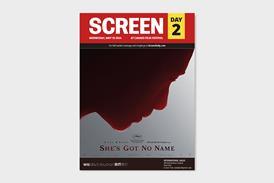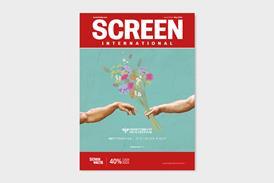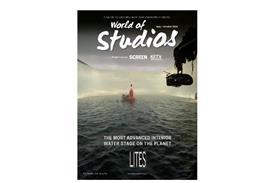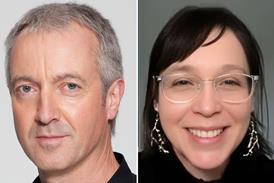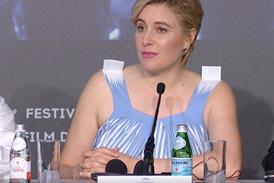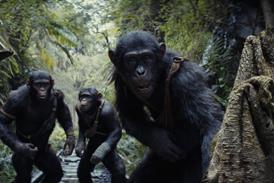Blogger-turned-author Aubrey Gordon fights against fat shaming in Jeanie Finlay’s latest documentary
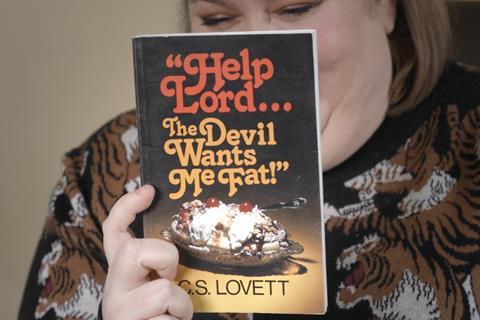
Dir: Jeanie Finlay. UK. 2023. 90mins
Through her initially anonymous, ruthlessly candid and hugely popular blog YrFatFriend, which began in 2016 with a viral manifesto essay, activist Aubrey Gordon seeks to unpick society’s obsession with thinness and change the conversation around being fat. This engaging, eye-opening documentary follows Gordon over six years, as a book deal forces her to give up her anonymity and she further explores her own relationships with food, her family and society at large.
She knows she is fat. She just wants it not to be the thing that defines her.
British director Jeanie Finlay has an eye for an interesting human story and a knack for drawing the best from her subjects. Her last film, Seahorse, delved behind the headlines to present a sensitive portrait of transgender Freddy McConnel and his pregnancy, and she deploys the same lightness of touch here. An authentic exploration of an evergreen subject, Your Fat Friend could attract specialist distributor or streamer play following its Tribeca bow and subsequent Sheffield Doc/Fest berth.
“Just say fat,” implores blogger-turned-author Gordon, who is fed up with hearing cutesy terms like ‘big-boned’ being used to describe her size. This simple request – which opens the film and is repeated later, as she reads one of her essays at a book signing in her home city of Portland, Oregon – is fundamental to Gordon’s ethos that we need to embrace fatness as an alternative way of being, rather than a taboo subject to be downplayed, ignored or used as a cautionary tale. It is not about self-esteem, or self-love. She does not need people to comment on her beautiful skin, her wonderful laugh (although it is infectious) as a way of sidestepping her weight. She knows she is fat. She just wants it not to be the thing that defines her. “Every discussion about bodies — whether in the media or amongst friends — is about how to avoid the horrible fate of looking like me,” says that first essay. “I need you to hear that this all hurts.”
No stranger to activism, Gordon has worked for a non-profit helping marginalised communities register to vote and campaigned for LGBTQ+ rights. But this topic is far more personal, leaves her far more vulnerable. Anonymity was her armour, and helped her withstand the constant barrage of hateful messages — many of which are plastered on screen. When approached to write a book (2020’s ’What We Don’t Talk About When We Talk About Fat’), Gordon’s happiness was undercut with a severe anxiety about outing herself; many tearful moments she shares directly to camera.
There are also frank conversations with Finlay, who remains an occasional off-camera voice, and Zoom calls when Covid hits — something that intensifies Gordon’s feelings of isolation. This is underscored by emotive framing, often showing Gordon alone at her window, or swimming in solitude (something she loves but no longer feels confident to do in pubic) and a responsive score which strikes notes of trepidation, defiance and joy.
Gordon refuses to be silenced. She publishes her book (and has since written a follow-up), co-hosts health podcast Maintenance Phase (which has won a Webby) and continues to write about her experiences — from her fear of travelling by air to the unkindness of strangers and the thoughtlessness of friends. Some of these moments are captured by Finlay. Throwing her a surprise birthday party, Gordon’s father, Rusty, makes a huge deal about how her cake is “zero sugar”. Family friends discuss their own fear of gaining weight at Thanksgiving dinner. And candid conversations with Gordon’s perennially dieting mother Pam motivates her to rethink her own role in her daughter’s difficult relationship with food.
This, says Gordon, is her biggest hope; not that she will single-handedly shift the dial, but that her work will encourage people to have difficult conversations about this controversial subject. “My aim is to provoke people to question the things they always thought were true,” she says. This documentary should be another important tool in her arsenal.
Production company: Glimmer Films
International sales: Cinetic Media info@cineticmedia.com
Producers: Jeanie Finlay, Suzanne Alizart
Cinematography: Stuart Skylar Copeland, Jeanie Finlay, Lindsay Trapnell, Michael Palmieri, Donal Mosher, Aubrey Gordon, Mark Bushnell
Editing: Alice Powell
Music: Tara Creme

